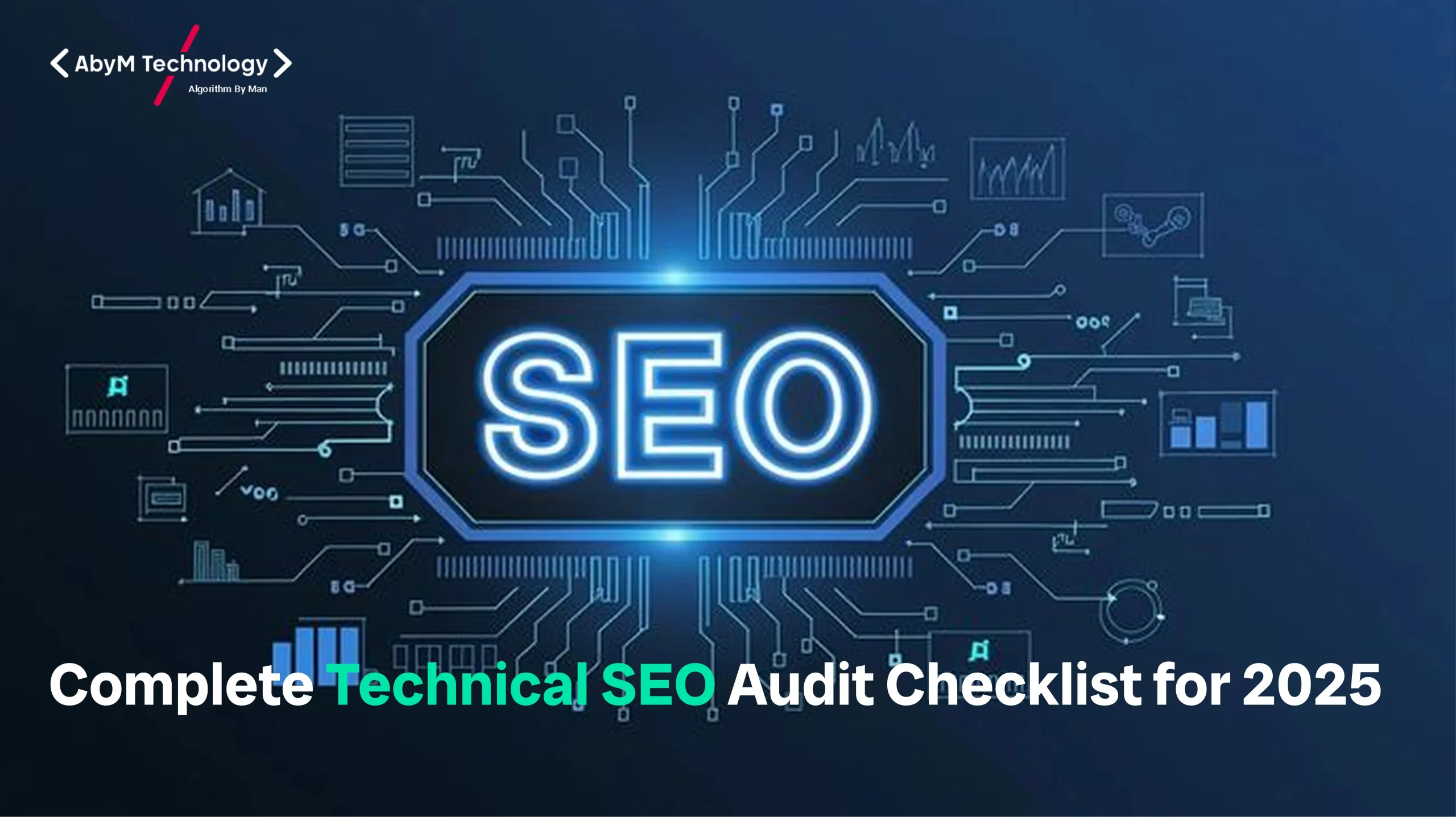Complete Technical SEO Audit Checklist for 2025 (Aug-Dec)
blog » Complete Technical SEO Audit Checklist for 2025 (Aug-Dec)

Technical SEO is the backbone of your website’s visibility. No matter how great your content is, if search engines can’t crawl, index, or render your site properly, your rankings will suffer. In 2025, with Google’s continuous algorithm updates and a stronger focus on Core Web Vitals, mobile-first indexing, and structured data, a technical SEO audit isn’t optional—it’s essential.
Here’s the ultimate step-by-step Technical SEO Audit Checklist for 2025 to make sure your site stays search-friendly, fast, and future-proof.
Table of Contents
Toggle1. Crawlability and Indexing
-
Use tools like Screaming Frog, Sitebulb, or Ahrefs to crawl your site.
-
Fix crawl errors in Google Search Console (404s, server errors, redirect loops).
-
Ensure only valuable pages are indexed; block thin/duplicate pages with robots.txt or noindex.
-
Submit and validate XML sitemaps.
2. Website Architecture & URL Structure
-
Keep URLs short, descriptive, and keyword-friendly.
-
Ensure logical internal linking so search engines and users can navigate easily.
-
Avoid orphan pages (pages with no internal links).
-
Use breadcrumb navigation for better user experience and rich snippets.
3. Mobile-First Optimization
-
Test with Google Mobile-Friendly Test.
-
Ensure responsive design across all devices.
-
Optimize fonts, buttons, and images for smaller screens.
-
Prioritize tap targets (links and buttons) for usability.
4. Site Speed & Core Web Vitals
-
Check LCP (Largest Contentful Paint), CLS (Cumulative Layout Shift), and INP (Interaction to Next Paint) in 2025 metrics.
-
Compress and serve images in WebP/AVIF.
-
Use lazy loading for videos and images.
-
Minimize JavaScript and leverage server-side rendering (SSR) when possible.
-
Enable browser caching and CDN delivery.
5. HTTPS & Security
-
Ensure the whole site runs on HTTPS.
-
Fix mixed-content errors (HTTP resources on HTTPS pages).
-
Add HSTS (HTTP Strict Transport Security) for extra security.
6. Structured Data & Schema Markup
-
Implement schema.org markup (Article, Product, FAQ, LocalBusiness, etc.).
-
Test with Google’s Rich Results Test.
-
Add BreadcrumbList schema for navigation.
-
Ensure schema follows Google’s guidelines to avoid penalties.
7. Duplicate Content & Canonicalization
-
Use rel=canonical tags for duplicate/variant pages.
-
Avoid duplicate title tags and meta descriptions.
-
Consolidate http/https and www/non-www versions.
8. On-Page Technical Elements
-
Unique and optimized title tags (55–60 characters).
-
Compelling meta descriptions (150–160 characters).
-
Proper use of H1–H4 headings.
-
Descriptive alt text for images.
9. Logs & Crawl Budget Optimization
-
Analyze server log files to see how search engines crawl your site.
-
Prioritize crawling of money pages, prune low-value URLs.
-
Reduce faceted navigation crawl issues (filters creating endless URL variations).
10. International SEO (if applicable)
-
Implement hreflang tags for multilingual sites.
-
Ensure correct geo-targeting in Google Search Console.
-
Prevent duplicate content issues across regions.
11. Technical SEO Tools for 2025
-
Google Search Console & GA4
-
Ahrefs, SEMrush, or Moz
-
Screaming Frog / Sitebulb
-
GTMetrix, PageSpeed Insights, WebPageTest
-
Log file analyzers
Conclusion
A technical SEO audit in 2025 goes beyond fixing broken links and adding meta tags. It’s about creating a crawlable, fast, secure, mobile-friendly, and structured website that aligns with how search engines—and users—experience your brand.
Run this checklist quarterly, and you’ll not just survive but thrive in the competitive SEO landscape of 2025.
❓ FAQs (SEO Optimized)
Q1. How often should I perform a technical SEO audit?
A1. Ideally, at least once per quarter or after major site changes (migrations, redesigns, new features).
Q2. What’s the most important part of a technical SEO audit in 2025?
A2. Core Web Vitals (LCP, CLS, INP), crawlability, and structured data are the top priorities this year.
Q3. Can I do a technical SEO audit without paid tools?
A3. Yes. Google Search Console, PageSpeed Insights, and Screaming Frog’s free version are great starting points.
Q4. Does structured data still matter in 2025?
A4. Absolutely. Schema markup increases eligibility for rich results, which improves visibility and CTR.

